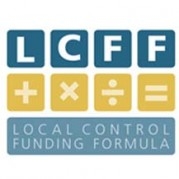Ensuring the Local Control Funding Formula Works for California families
Page Media

Just under a month ago, the California State Board of Education was tasked with reviewing and voting on the emergency spending regulations and accountability template, the rules that govern how school districts must use the funding they have received under Governor Brown’s Local Control Funding Formula (LCFF) and how they will be held accountable to ensuring that the promise of the LCFF becomes a reality.
Hundreds of parents and students boarded buses from across the state the night before the meeting, sacrificing sleep, work, school and time away from their families to spend hours riding a fleet of charter buses to Sacramento in order to raise concerns about the proposed rules to State Board members in person.
The LCFF redefines school funding in California, shifting from a complex model that failed to meet the needs of California’s diverse student body to a model that allocates higher levels of funding to high need students, with the goal of supporting improved student success. The LCFF shifts many spending decisions from the state to the local school board, creating ample opportunity for local decision makers – school board members, parents, students and community advocates – to shape the conversation on what a successful school spending plan looks like.
In order for LCFF to be successful in its mission, there is a need for greater clarity to school districts and families on how the additional funding for high need students should be spent. A key concern community members and advocates raised in November 2013 was how districts would be held accountable for spending the additional funding, called supplemental and concentration funds, on improving educational outcomes for the students who generated it. The revised spending rules and regulations presented at the January State Board meeting greatly clarified that – but it left one significant potential loophole.
For districts with a student population of 55% or more high need students, districts may spend the additional supplemental and concentration funding on districtwide expenses. That could mean that rather than spending the additional funding for high need students on a targeted afterschool program, it could go to lengthening the school day for all students by 30 minutes – a proposal that Fresno Unified is considering. Shydae, a high school student organizer with Californians for Justice, raised concerns about whether that is a good use of funds when she testified to State Board members on January 16th.
Shydae, and the hundreds of parents and students from around the state patiently waited from 8 a.m. til nearly 4 p.m. for their turn to speak for a mere 1-3 minutes before State Board members. But they didn’t just sit quietly – they marched up and down the street in front of the Department of Education building, powerfully shouting chants for Board members to keep their promise and close the spending loophole.
In between the hundreds of community members, nearly a hundred administrators and school board members came to thank the State Board and ask for maximum flexibility, while also asking the community for their trust. Within the same hour, parents and youth organizers from Stockton testified that district officials in their community continue to withhold information about how their district is spending its LCFF funds, a statement that made State Board members sit up a little straighter. The mantra for the day was an understandable “trust… but verify”.
After listening to nearly six hours of public comment from 330 speakers, State Board members unanimously voted on the emergency spending regulations and accountability template without any amendments. But as Board members Williams and Sandoval noted, they take very seriously the concerns raised by community members around the state in ensuring that LCFF is implemented faithfully, with community input, to improve outcomes for high need students. And the ACLU does too.
We’ll be in conversation with districts and counties in the coming months to ensure that implementation is occurring in line with the intent and letter of the regulations. We will also be in touch with the State Board as they develop the permanent LCFF regulations.
Are you concerned about how LCFF is being implemented in your district? Let us know!
Laila Fahimuddin is an Organizer with the ACLU of Northern California.
